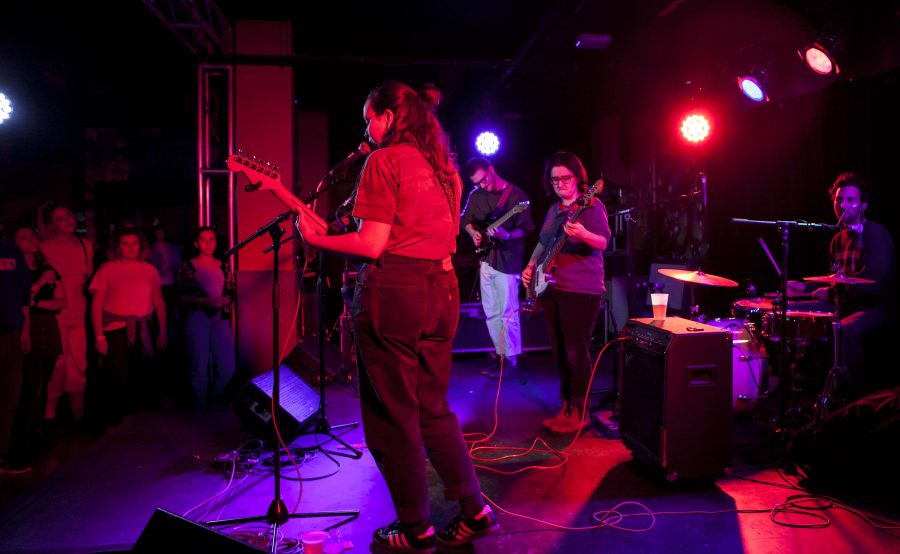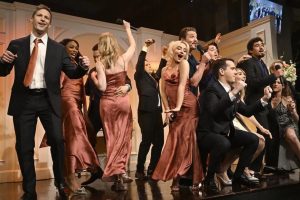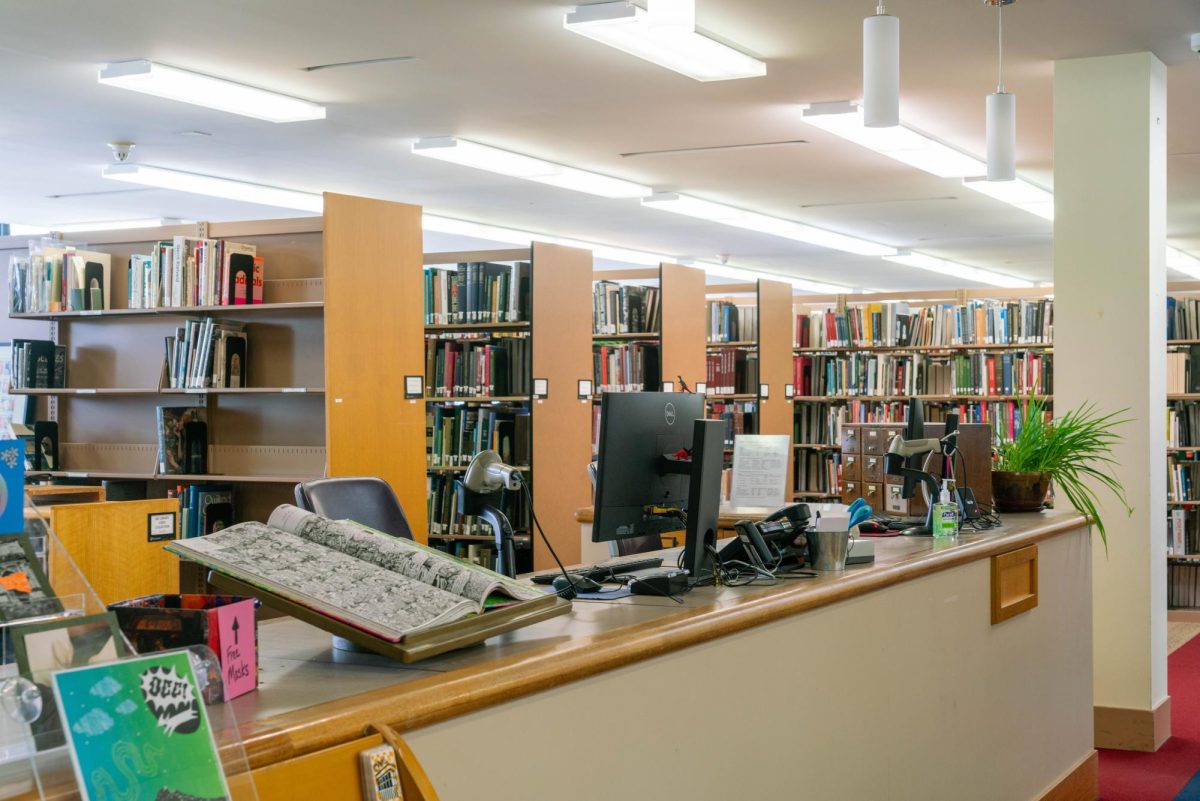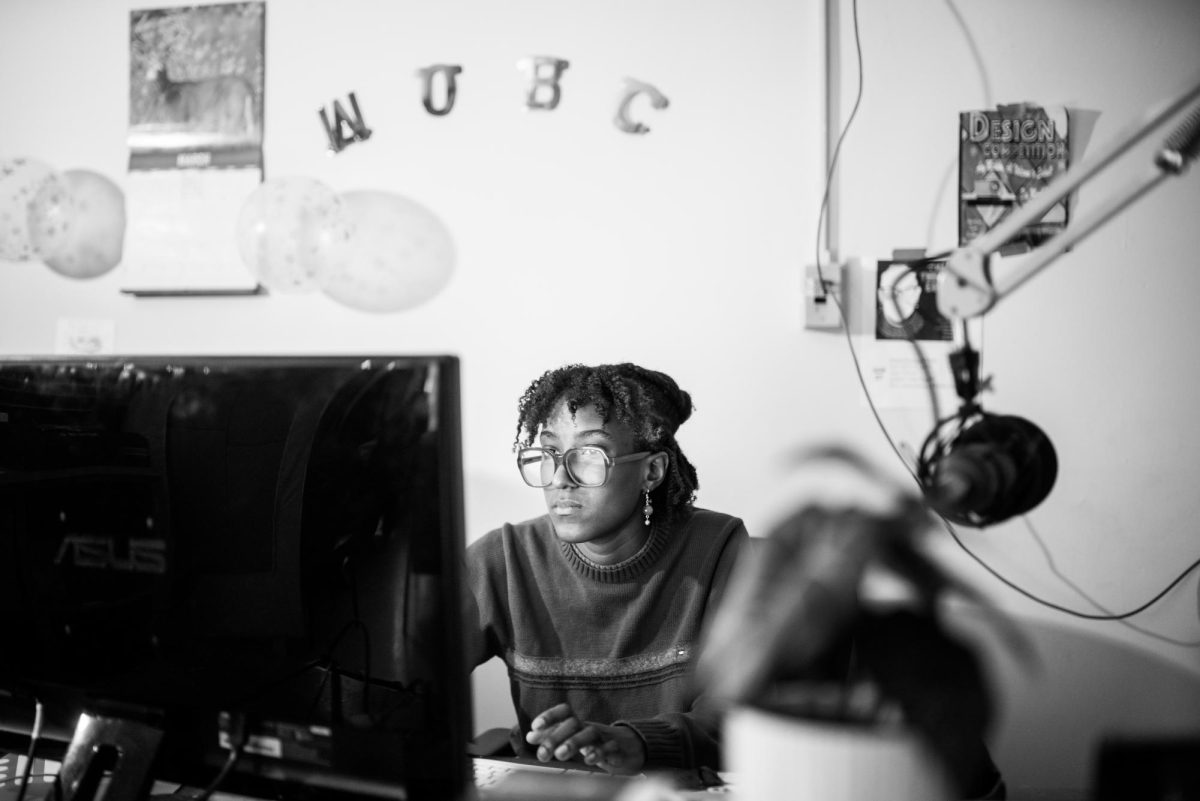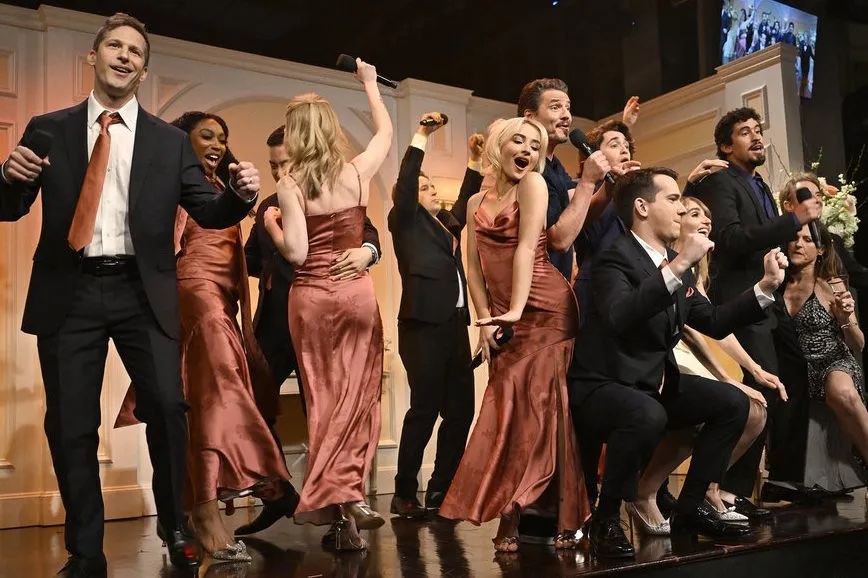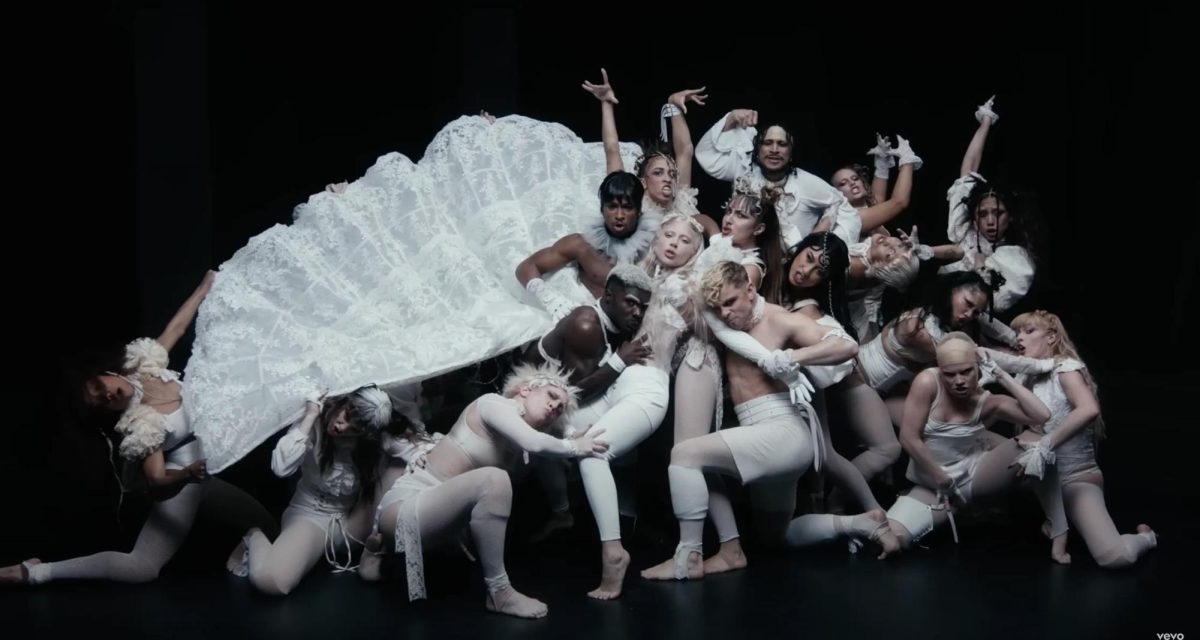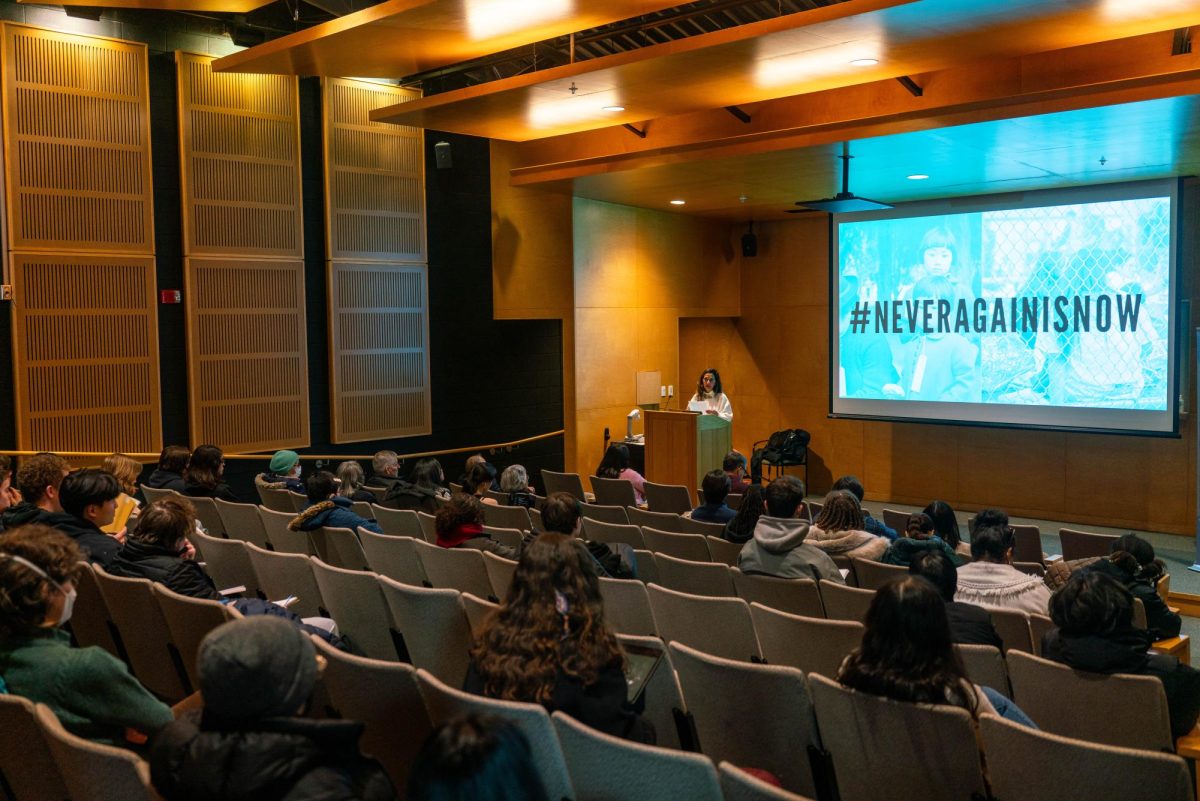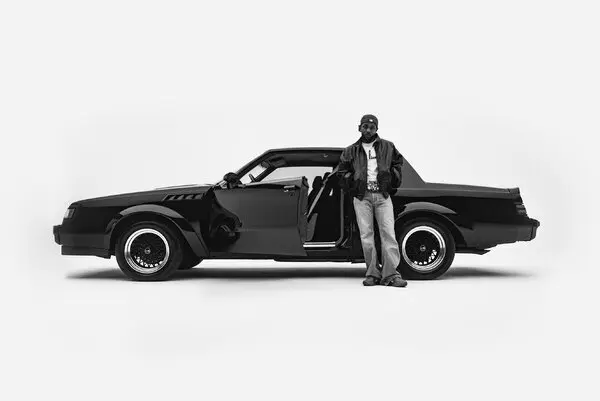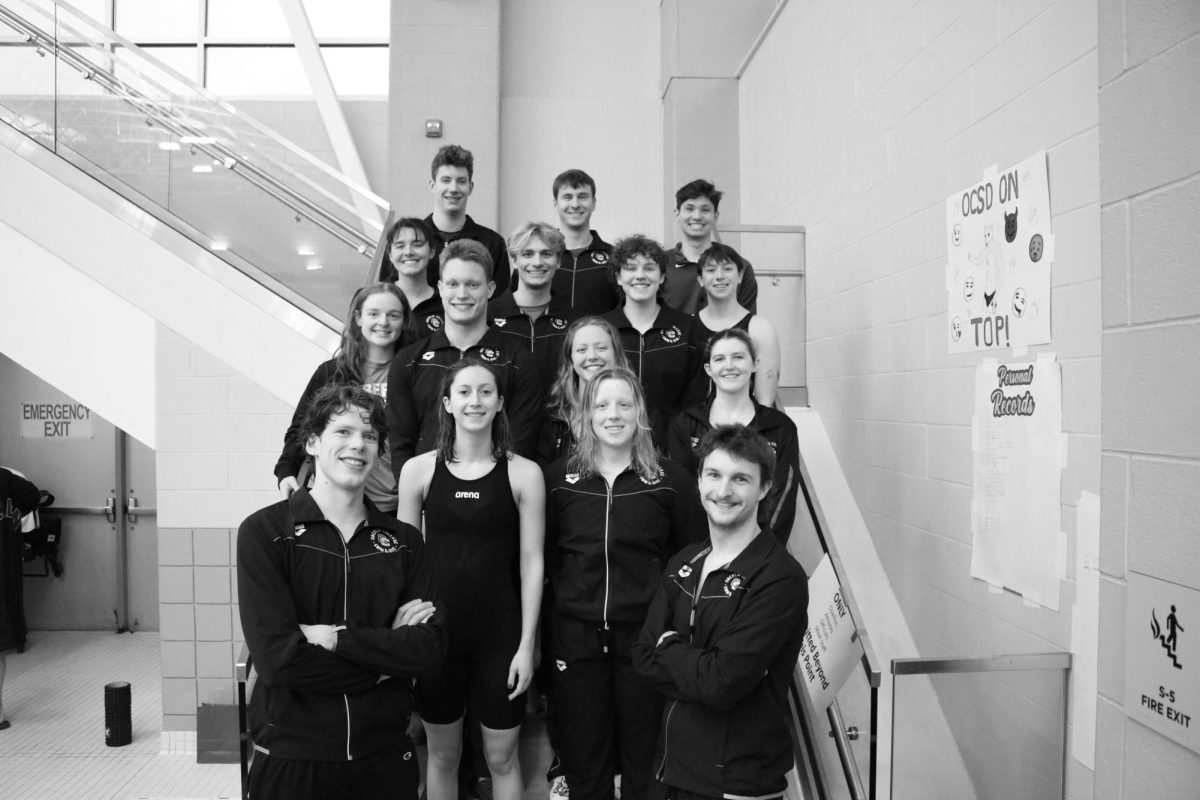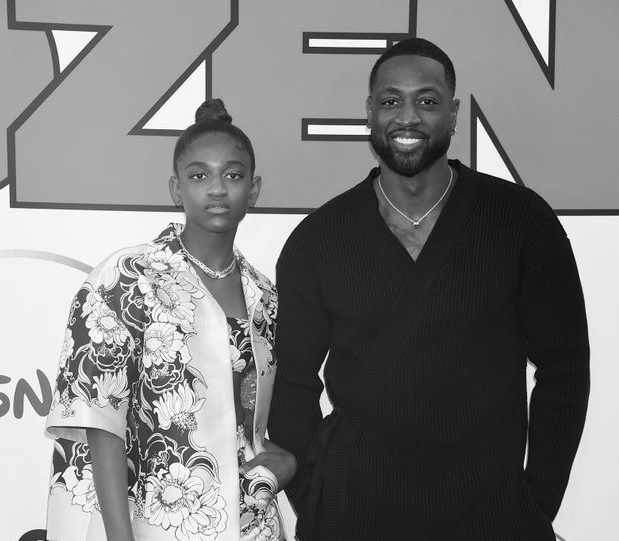For SPORTS Fans, ’Sco Turns Stadium
Photo by Bryan Rubin, Photo editor
Kenyon alumni perform together as the basement rock band SPORTS. The group concluded its tour at the ’Sco Monday night with songs from its sophomore record All of Something.
November 18, 2016
Oberlin loves SPORTS, as evidenced by the large number of students who attended the basement-rock group’s free show Monday night and the cacophonous applause it received when upon taking to the ’Sco stage.
Before their performance, the Review sat down with members of the band.
“I love Oberlin,” SPORTS bassist Catherine Dwyer said. “We have a lot of friends here.”
“The food is good here, too,” drummer Jack Washburn added. “It’s like a metropolis compared to Gambier.”
The show marked the finale of SPORTS’ latest tour, which included a stop at its members’ alma mater, Kenyon College.
Guitarist and vocalist Carmen Perry and Dwyer now live in Philadelphia. Perry writes most of the band’s music, including many of the songs on its sophomore record, All of Something. Released last year under Father/Daughter Records, the album contains several power-pop gems outlining the fears and anxieties experienced by those approaching graduation.
“I wrote most of the songs [on the album] my senior year of college, which was from 2014–2015,” Perry said. “A lot of them dealt with coming to terms with school ending after being there for your entire life. They’re about not having a plan, which is scary.”
The band members have graduated, moved away from Gambier and hold day jobs, but the lyrical content of the songs they perform hasn’t changed. “I feel like I’m writing about the same stuff [since moving to Philadelphia],” Perry said.
The group played the majority of All of Something in front of a delighted audience Monday night. Smiling students bopped along to sounds of energetic drumming and punchy guitars, and particularly seemed to relish the disjointed, more experimental lead guitar hooks.
Perry’s strong voice brought out the clarity of the the band’s cohesive sound. The band members’ friendship was also evident on stage; they looked like they were having a blast, feeding off the positive energy the audience gave them.
The relationship between the band and its audience is something its members cherish. This bond is reflected not only in the band’s interactions with its audiences, but in its performance philosophy as well. “We really want to make sure that people who come to see us feel safe and [ feel] like someone cares about them,” Perry said.
SPORTS has also spoken out against the lack of diversity in different regions’ DIY music scenes. In a post on the band’s Facebook page in July, members wrote about “support[ing] marginalized people in music, not just tokenizing them.”
“In Philadelphia, there’s always going to be a band with a girl on the bill,” Dwyer said. “There always is.”
Dwyer’s comments are informed not only by experience in an industry whose claims of diversity are widely criticized for tokenism and reports of very physical audiences in certain genres, but also by situations SPORTS has directly experienced. In Cleveland, the band appeared at a music festival that Dwyer described as being “95 percent dudes” and “pretty rowdy and crowded.” She recounted times at shows where she had been elbowed in the head. Though some people often associate punk shows with rowdiness, to Dwyer, getting pushed around “doesn’t seem that punk.”
“[Events like that] don’t make us feel safe,” Perry added.
“Obviously, we want people to have fun, but we want people to take care of each other,” Dwyer said. “We want them to jump around, but not land on people.”
The students at the show were respectful of SPORTS’ preferences, as they danced and sang along but were also cognizant of the space they occupied. The performance ended on a high note, to loud applause following the final number. In keeping with its trademark friendliness, the band stayed to talk after the performance, closing out their tour on a warm note.


